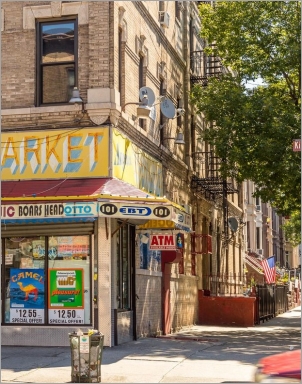"What NYC Can Do to Help More Minority-Owned Businesses Sell Online & Compete in an Age of E-Commerce"
A Center for an Urban Future Policy Symposium
Replay of the event
Event materials
Before the start of the COVID-19 pandemic, strikingly few of New York City’s minority- and immigrant-owned small businesses had built up e-commerce capabilities and many had only just begun to adopt other technology and social media tools. Although some progress has been made during the past two years, much more is needed to ensure that these businesses are able to take advantage of growth opportunities—like tapping into the surge of New Yorkers whose online shopping habits have accelerated during the pandemic—and become more competitive and resilient. This forum explored how policymakers can help to accelerate this progress and enable far more of New York’s minority- and immigrant-owned small businesses to succeed in the digital age.
The event put forth concrete ideas for city economic development officials, including strategies to help small retail and service businesses increase online sales and platforms that would make it easier for New Yorkers to purchase goods online from local retailers. It also examined the vital role of community-based small business assistance providers in helping New York meet this challenge.
Speakers included:
- Commissioner Kevin Kim, NYC Department of Small Business Services
- Council Member Jennifer Gutiérrez, New York City Council; Chair, Committee on Technology
- Council Member Julie Menin, New York City Council; Chair, Committee on Small Business
- Phumelele Kunene, Founder, Ebaata Skin Care
- Camille Newman, Director, Brooklyn Women's Business Center, LDC of East New York (LDCENY)
- Meredith Phillips Almeida, Director, NYC Small Business Resource Network
- Arva Rice, President & CEO, New York Urban League
- Valerie White, Executive Director, LISC NYC
A video of the full discussion is available here.
This symposium was made possible through generous support from Verizon. We are also grateful for general support from The Clark Foundation, the Bernard F. and Alva B. Gimbel Foundation, the Altman Foundation, and ongoing support from a number of other philanthropic funders.


